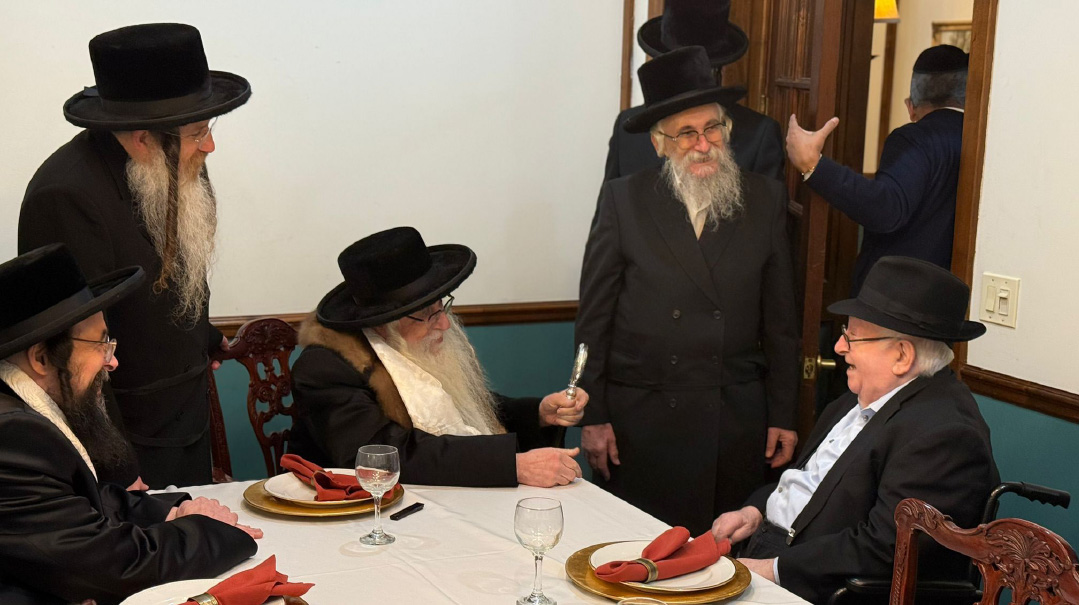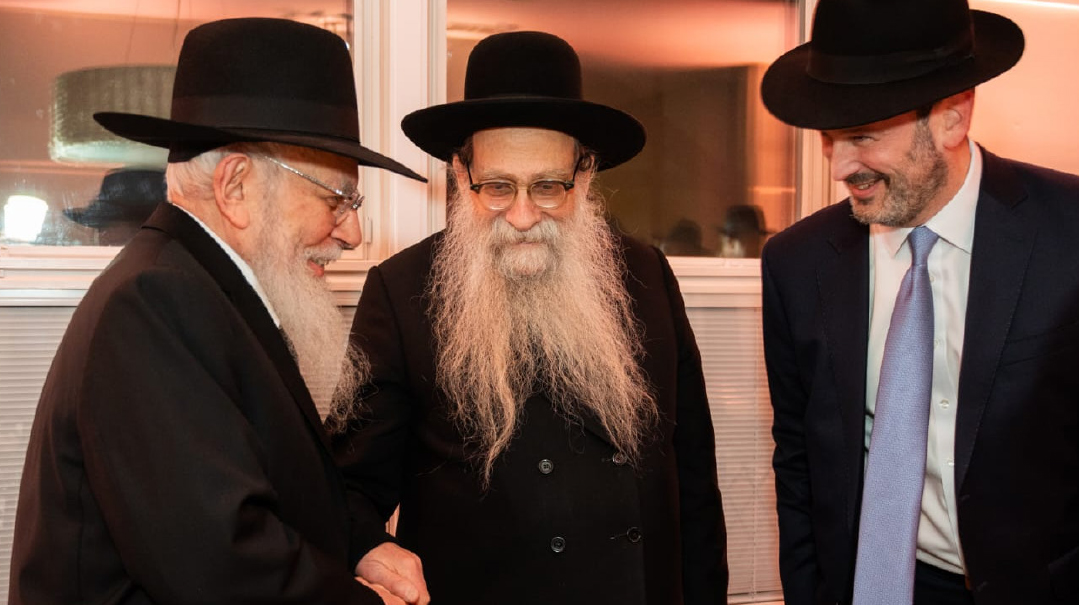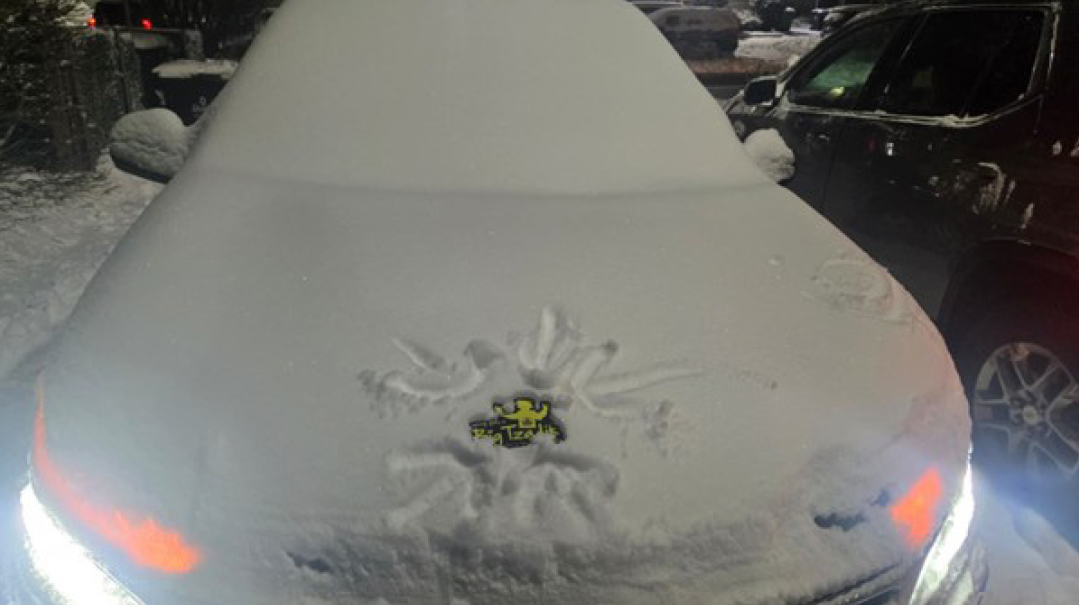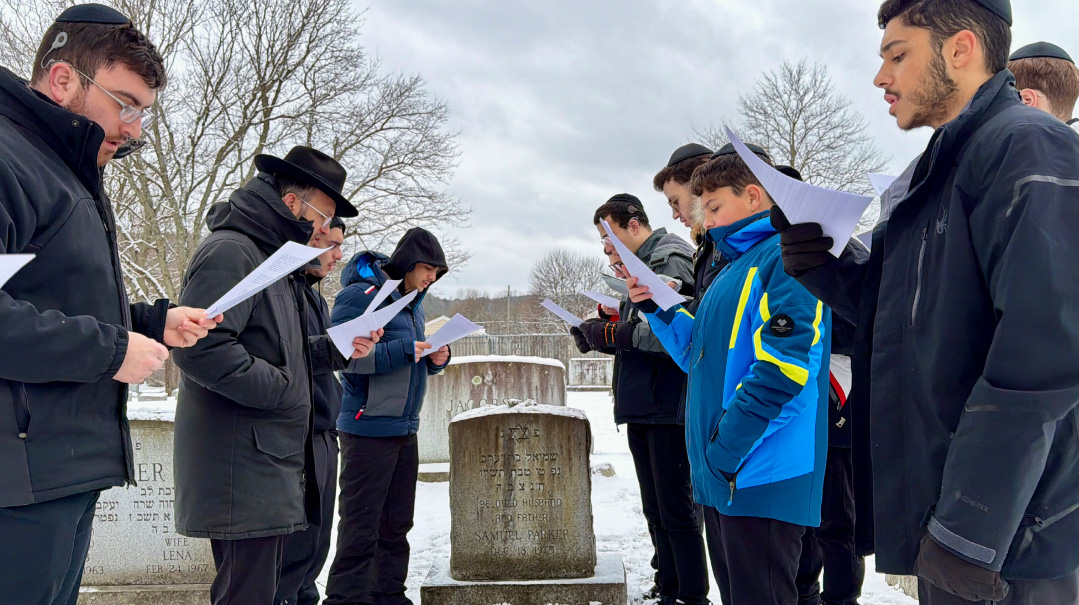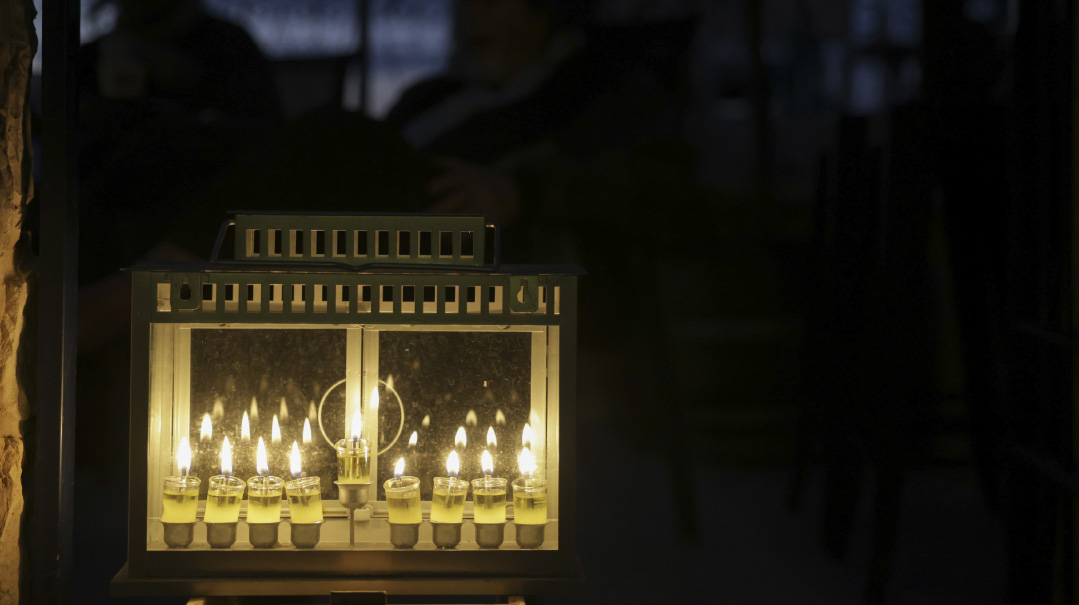The Moment: Issue 986
| November 14, 2023Moshe Bodner of the Five Towns is part of a team running a mammoth chesed operation since the onset of the war
Living Higher
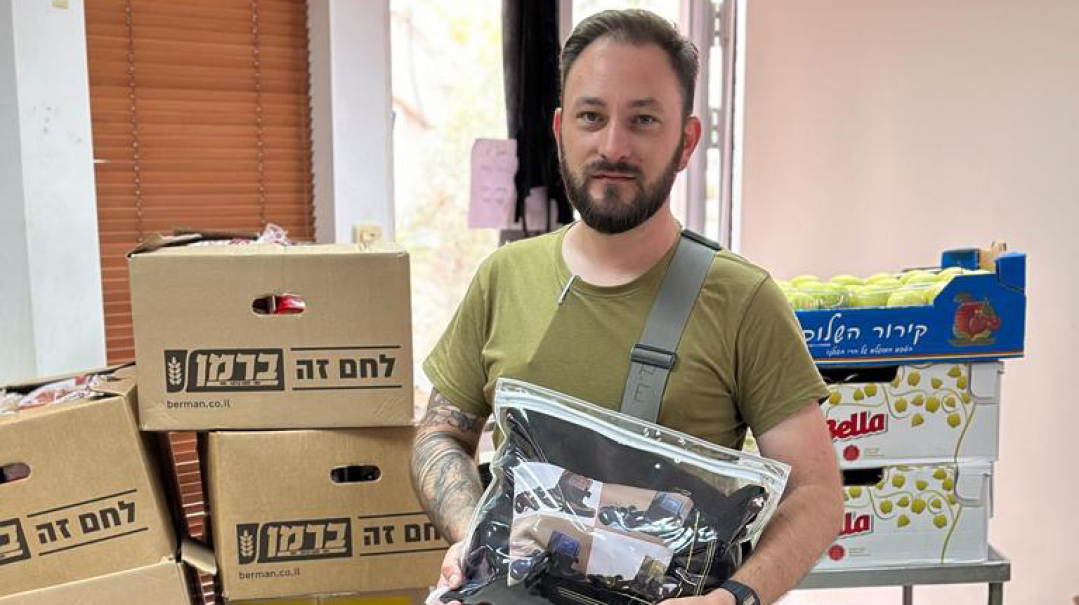
M
oshe Bodner of the Five Towns is part of a team running a mammoth chesed operation since the onset of the war. He’s seen his fair share of incredible siyata d’Shmaya, along with the beauty of Klal Yisrael on full display.
Last week a soldier contacted him with an urgent request.
“Moshe,” said the soldier, who identified himself as Shai, “I need your help. My base was changed, and in the process, my tallit and tefillin got lost. Is there any way you can get me a new set?”
“Sure,” said Moshe, though he wasn’t quite sure how. “We’ll get it to you.”
He quickly reached out to a member of a Beit Knesset Nitzanim in Baka, where he had davened when he lived in Yerushalayim. That member sent out a message to the shul’s chat and, within an hour, a tallis and pair of tefillin were donated. The donor happened to be traveling down south the next day, and his destination was approximately 20 minutes from the soldier’s new base. Being a Kohein, the donor enclosed a note with the text of Bircas Kohanim, sending a blessing along with the cherished gift.
And so a soldier down south who reached out to a Jew in the Five Towns received a new pair of tefillin from another Yid in Baka, those firm straps of leather forging an inseparable bond among a people who will forever be united at heart.
HAPPENING IN... Cincinnati

Rabbi Chaim Heineman, the rosh kollel of the Cincinnati Community Kollel, is also a highly skilled mohel servicing the broader local community. Two weeks ago, he received a phone call from a woman who identified herself as a Reform Jew.
“We had a baby boy,” she told Rabbi Heineman, “and we understand that you’re a mohel. However, we’re not sure if we want to circumcise our child. After all, he’ll only be eight days old, unable to decide for himself. We’re considering forgoing the circumcision and allowing him to make the choice himself once he’s 18.”
“Listen,” Rabbi Heineman said, his mind working feverishly. “I’ll tell you two things. First of all, you’re not being fair to your son. A circumcision as an infant takes 45 seconds and has a pretty short recovery period. As an adult, it will take 45 minutes and be incredibly painful for weeks thereafter.
“And,” Rabbi Heineman continued, “more importantly, for the past 3,300 years, your child’s ancestors, father to son, were circumcised. How can you allow your son to be the broken link in the chain? How can you do that to him?”
The woman listened quietly and promised to think it over. The following day she called back.
“Rabbi,” she said, “I thought about what you said. And I think that with all that’s been going on in Israel, it’s a privilege to bring another Jew into the world and I want him to stay connected. It will make us that much stronger. We would like to go ahead with the circumcision.”
The bris took place, and Rabbi Heineman served as the mohel, reciting the brachos and the krias sheim and welcoming another member to the Jewish People.
“We’ve heard about chizuk in tzitzis, tefillin, Torah, and tefillah,” Rabbi Heineman comments reflecting on the experience, “but now, we hear of chizuk in bris milah as well.”
There’s no tallying the enormous amount of funds contributed toward those affected by the war. But Reb Yosef Kunstlinger of Beis Medrash Knesses Yisroel of Monsey reasoned that donations need not be limited to dollars and cents. He spearheaded an initiative within his shul soliciting donations of “hours,” where people committed to add a certain amount of time learning each day. The program took off with much success, the added hours of Torah learning surely even more valuable than millions of dollars in military aid.
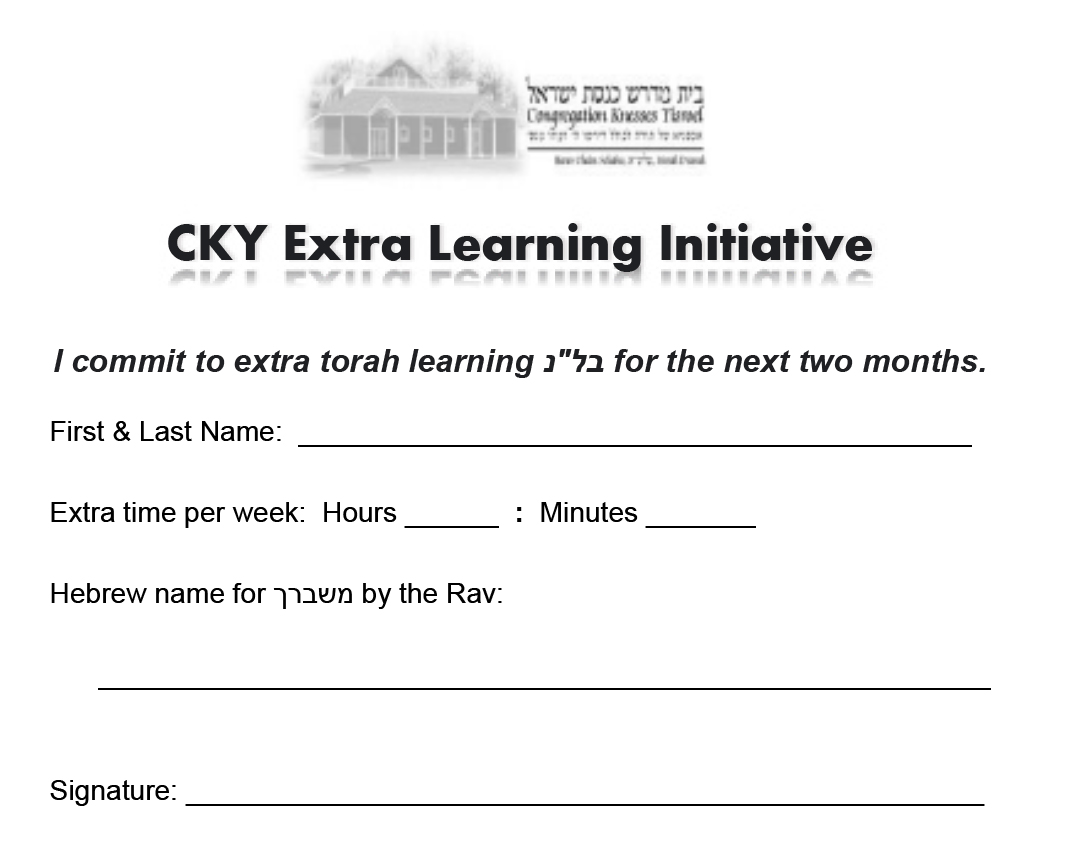
His Message Still Echoes Today
In 1991, in the shadow of the Gulf War, Rav Zelik Epstein ztz”l, rosh yeshivah of Shaar HaTorah, delivered a derashah in Yiddish addressing the events. The speech, which was translated and transcribed by Reb Dovid Steinberg, a devoted talmid, may as well have been given yesterday. The following is one excerpt from the speech, a reminder that tefillah alone won’t suffice; Hashem wants us to do teshuvah as well.
The tefillos and hisorerus during an eis tzarah must contain the element of teshuvah and not just beseeching Hashem for a yeshuah. Hashem, in His great kindness, sends us difficulties as a warning and a chance to improve ourselves. Our response to tzaros must be mi’darchei hateshuvah. This is a basic tenant of our foundational belief in sechar v’onesh.
If one does not recognize an eis tzarah as an opportunity for teshuvah and simply attributes events to the natural effects of global politics, he is an achzar (Rambam, Hilchos Taanis 1:4), acting cruel and with heartlessness to his own detriment. It will only cause Hashem to compound the tzaros, again and again, until “tashev enosh ad daka va’tomer shuvu bnei adam — Hashem returns man to dust, Hashem calls out ‘People, repent!” (Tehillim 90:3). A great eis tzarah for Klal Yisrael obligates us to think about teshuvah.
(Originally featured in Mishpacha, Issue 986)
Oops! We could not locate your form.

